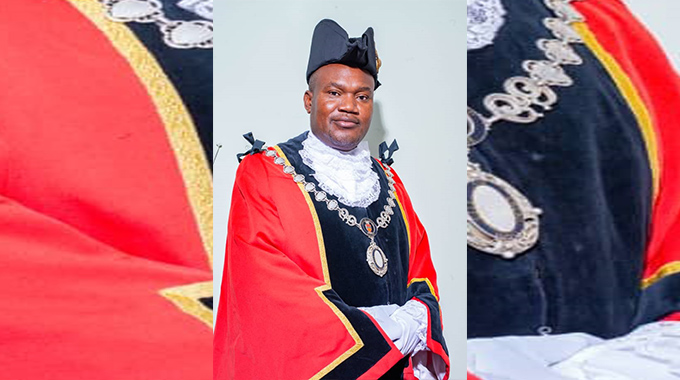Poor revenue inflows cripple Gweru City Council

Patrick Chitumba, [email protected]
THE Gweru City Council (GCC) collected $80,3 billion in rates and other service charges in 2023 representing 71 percent of the target revenue of $113 billion while the debtor’s book stands at $64,2 billion.
The local authority has expressed concern over subdued revenue inflows amid concern over liquidity challenges mainly due to non-payment of arrears, which frustrates the provision of efficient service delivery.
The council has also admitted to failure to service its creditors on time, including struggling to pay its workers.
Residents on one hand accuse council management of poor decision-making and uncontrolled expenditure related to luxuries for senior staffers.
In his “State of the City address” Gweru mayor, Councillor Martin Chivhoko, lamented low revenues as a major challenge for the council.
“In the fiscal year 2023, the City of Gweru mobilised $80,3 billion, representing a collection efficiency of 71 percent compared to target accrued income of $113 billion,” he said.
“As of December 31, the outstanding debtors amounted to $64,2 billion, while creditors stood at $16,5 billion.”
Cllr Chivhoko said the local authority had a devolution allocation of $1,3 billion for 2023, specifically earmarked for capital projects aimed at enhancing the well-being of the city’s residents.
However, he said that only ZWL$323 million, which is 25 percent of the allocated funds, was disbursed by the Central Government.
“Consequently, 75 percent of the earmarked projects could not be implemented due to the non-disbursement of funds,” he said.
Turning to water, Clr Chivhoko said that the daily pumping regime continues to fluctuate between 40 and 45 megalitres per day out of an installed design capacity of 65 megalitres per day at Gwenhoro Water Treatment Plant.
“The fluctuation is either a result of power cuts, under voltages or pump breakdowns. The city’s unrestricted demand currently stands at 125 megalitres.
“It is our hope to improve our pumping capacity, currently we have commissioned three new high lift pumps. We hope to procure four electric motors for Amapongobgwe low lift pumps and we also look forward to repairing two pumps at Gwenhoro low lift,” he said.
“These interventions will boost our daily pumping capacity to at least 60 megalitres per day.”
At Whitewaters, the mayor said the pumping capacity is 1,5 megalitres per day out of a design capacity of 3,6 megalitres per day provided there is a 24-hour supply of electricity.
On sewerage service provision, he said, the local authority is facing challenges with rampant sewer blockages due to several reasons, which include dumping of foreign objects into sewer lines by residents, seasonal flooding when it rains, obsolete infrastructure and non-functional sewage pump stations.
“Efforts are underway to restore pumping at Phakamisa sewer works. We recently procured two submersible pumps for Nashville and Montrose sewage pump stations, which are to be installed after pumping has resumed at Phakamisa,” said Clr Chivhoko.
“Plans to tender the procurement of submersibles for other sewage pump stations are in progress.”
He indicated that the council has rewound two electric motors for Phakamisa and one submersible pump for Mkoba 4 pump stations after they had broken down, adding that pumping operations will be resuming soon.
“Commencement of pumping operations at Phakamisa will help relieve most sewer lines in that catchment, which are currently loaded with sewer since we have not been pumping at Phakamisa for a long time.
“At Cambridgeshire, we de-sludged the Secondary Anaerobic Pond, which was full of sludge and we aim to complete the rehabilitation works after the rainy season,” said Clr Chivhoko.
On roads, he said 80 percent of the roads in the city centre were traffic-able but more effort was needed in patching potholes.
“We last carried out a tar pothole patching in October 2023. This is mainly because of the lack of tar pothole patching material,” he said.
“About 60 percent of the residential area roads are traffic-able. Our main challenge is the lack of equipment for carrying out grading to reshape roads, currently, one grader is operational.
“At times we have insufficient fuel, which restricts gravel supply to most residential roads with focus being on critical areas.”
Clr Chivhoko said the council is working on acquiring a new site to relocate the dumpsite that is located in Woodlands suburb.
The dumpsite, he noted, has become a menace to suburbs that were built around it, which include Woodlands, Mkoba 21, Paradise Park and Claremont Park.
Clr Chivhoko said the construction of the new landfill site comes with a huge financial request of almost plus or minus US$300 000 per cell.
“We intend to have six cells with a life span of five years each giving us a usage time period of plus or minus 30 years under proper management,” he said.
Meanwhile, through Government support, the council has acquired four fire tender trucks to replace the ageing and outdated fleet.











Comments